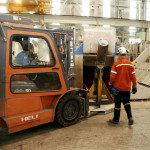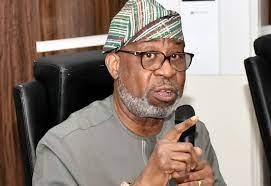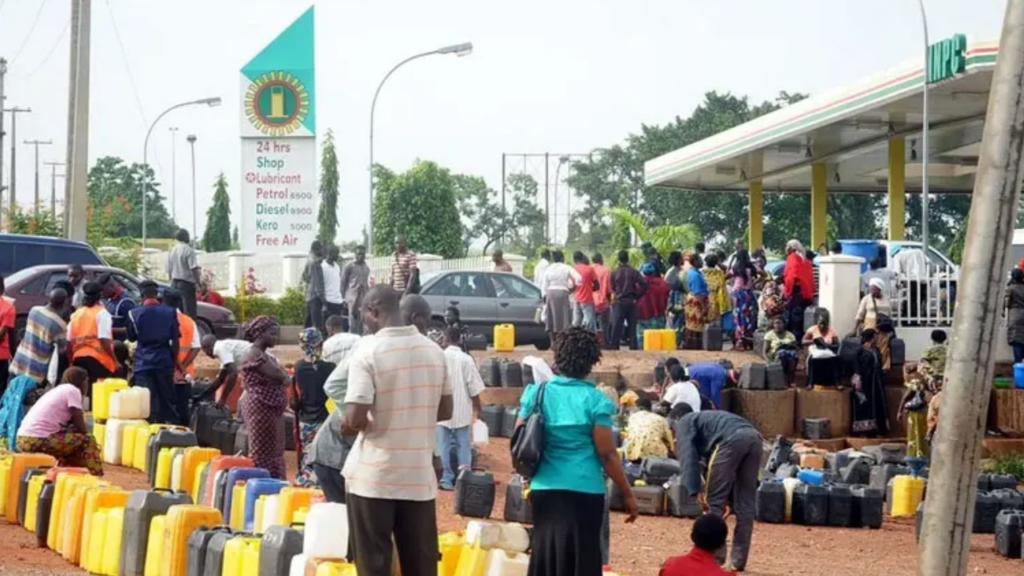Solid Minerals
Arabal to propose industrial strategies for competitive aluminium production
Aims to grow Region’s Aluminium output
By Joseph BAMIDELE
DOHA-The Arab International Aluminium Conference (ARABAL 2012), which will be held in Doha from the 20th to the 22nd of November 2012, aims to highlight the importance of aluminium related manufacturing industries, and to promote these industries and foreign investments inthe region’s countries.
This was contained in a statement issued by Sahara communications and made available to Biztellers in Lagos today.
According to the statement, Arabal’s organizing committee said that post crisis investment plans focus on all projects that help increase the share of productive sectors in GDP, improve the competitive edge of their products, and cope with the requirements of export markets.
They also remarked that recently special attention has been paid by the region’s countries toincreasing the contribution of the industrial sector in GDP, as the industrial sector is the second most viable sector withinthe oil and gas rich region. By doing so, they aim at diversifying sources of income, achieving optimal utilization of resources, and maximizing the added value of the region’sabundant natural reserves.
The committee added that the trend is now highlighting and promoting the existing attractive investment climate in GCC countries and beyond in the region, particularly in Qatar, which adopts a free economic policy and a legal framework that ensures enough incentives and facilities are offered to investors to help boost the feasibility of their current and future enterprises. Qatar is committed to not imposingany restrictions on foreign capital investment in order to allow completion between foreign and national capitals on and equal footing.
Petrochemical and oil refining industries are leading the way in the GCC’s industrial sector, followed by the iron, steel, metal and aluminium industries. All types of primary metal industries have significantly grown to double over the past decade, while the volume of investment has grown several times over the same period.
As the GCC countries are among the world’s largest consumers of metal products, such as iron, steel and aluminium, the expected production of aluminium may account for over 15% of the global production until 2020, if the planned aluminium projects are carried out by the GCC countries, particularly in Qatar, the UAE and the KSA. This trend will result in a demand driven shortage that will lead to imports from abroad. This will give the industrial sector additional incentives to expand and to attract more investments in line with local production frameworks, its development and, the requirements of the targeted growth.
Manufacturing industries in the region’s countries, in general, and Qatar in particular, areclassified as a highly stable sector inthe medium and long term, supported by extremely positive economic indicators, as the GDM in Qatar amounted $173.2 billion in 2011, with 18.7% growth in overall GDP and 2.3% inflation. These indicators reflect rising potential for all productionindustries, lead by the manufacturing industries, which account for a large share of the GDP. Worth mentioning is that the expanding the base of manufacturing industries is part of the State’s productionexpansion plans, with the aim to add value to the national economy and open diverse investment opportunities that take into consideration the levels of surrounding competition to enable investor sustainability and growth.
As a result of all the plans and strategies that aim to develop the manufacturing industry sector, the fastest growing sector in term of production in the GCC countries, the primary goals of creating investment opportunities and jobs will be fulfilled by establishing more industrial cities and compounds, which are expected to increase in number and size and to cover all productionactivities such as metallurgical industries, automotive assembly, building materials, packaging, consumer goods, electrical appliances, and other long term industries, led by aluminium, which is witnessing a special interest from investors, in what is hoped to pave the way for the manufacturing sector to strongly emerge and follow the successful model of the petrochemical industry in the near future.
Business
Nigeria set to boost Naira value and foreign reserve with local gold production, as Tinubu receives gold bar
IN a significant move to strengthen Nigeria’s economy, President Bola Tinubu received a symbolic gold bar on Sunday from the Minister of Solid Minerals Development, Dele Alake.
This gesture marks the commencement of the National Gold Purchase Program (NGPP), aimed at boosting the naira’s value and enhancing the country’s foreign reserves.
Minister Alake expressed gratitude to President Tinubu for his support of reforms in the solid minerals sector.
He highlighted that the NGPP, which involves sourcing gold from artisanal and small-scale miners and refining it to meet the London Bullion Market Association’s Good Delivery Standard, will substantially contribute to Nigeria’s economic stability.
Alake stated “This initiative will significantly increase our foreign reserves and strengthen the naira. The refined gold will be supplied to the Central Bank of Nigeria, marking a crucial step in our economic strategy.”
The presentation also underscored the first commercial transaction under the NGPP, establishing a centralized gold purchasing system that integrates small-scale miners, cooperatives, and production units across the nation.
This program is expected to provide a structured market for gold, fostering economic growth and stability.
He said, “The successful completion of the first commercial transaction clearly demonstrates the National Gold Purchase Program’s effectiveness. It has increased the nation’s foreign reserves assets and shown that using the Nigerian Naira to purchase a liquid asset traded in United States Dollars, such as gold, is a viable strategy. This transaction has also underscored the potential of the National Gold Purchase Program to enhance fiscal and monetary stability.”
Alake added that the initial commercial transaction under the program resulted in a +US$5 million boost in Nigeria’s foreign reserve assets.
The transaction involved refining over 70 kilograms of gold to meet the London Bullion Market quality standard and aggregating locally mined gold, thereby infusing approximately NGN6 billion into the rural economy.
President Tinubu expressed appreciation for the Ministry’s accomplishment in advancing the government’s goal of economic diversification by acknowledging and displaying the symbolic gold bar
Solid Minerals
FG Fingers Foreigners Sponsoring Banditry For Illegal Mining

The Nigerian Government has threatened to come down heavily on foreigners sponsoring bandictory as a way of sustaining illegal mining activities in parts of the country.
The warning was handed down in Abuja by Minister, Solid Minerals Development, Dr Oladele Alake, while receiving a delegation of the Nigeria-China Chamber of Mines led by its National President, Dr. Olugbenga Ajala.
Details of these were contained in a statement released by Head, Press & PR, Ministry of Solid Minerals Development, Alaba Balogun over the weekend.
The statement cited, Dr Alake, thus, “The government will come down firmly on these unscrupulous foreign operators sponsoring banditry to perpetrate illegal mining: let me use this medium to appeal through you to tell those sponsors to desist or face the full wrath of the law.”
According to Dr Alake, the Ministry is committed to establishing a multi-agency task force that will end the activities of illegal miners and their collaborators.
The Minster made it clear that the FG had given illegal miners a 30-day-ultimatum to legitimise their businesses, quit Nigeria or incur the wrath of the law.
According to him, this will help “to streamline and structure the Small-Scale Artisanal Miners for maximum yield to the Federal Government.”
The delegation paid a courtesy call on the Minsiter at the Ministry’s headquarters in Abuja.
Energy
Fuel Scarcity: Govt Yet to Increase Pump Prices – NMDPRA

By Edozie Obasi-Eze
Amidst heightening uncertainties in the domestic petroleum products market characterised by scarcity and irregular pricing, the Nigerian Midstream and Downstream Petroleum Regulatory Authority (NMDPRA) has declared that there’s no intention to review pump prices upwards.
This was contained in an advisory issued by General Manager, Corporate Communications, NMDPRA, Kimchi Apollo.
He stated that the Nigerian National Petroleum Corporation Limited (NNPCL) had imported PMS with current stock levels sufficient for 34 days.
In an attempt to address panic buying and speculations which have seen price of Premium Motor Spirit (PMS) oscillate between N180-N250 in the Lagos area, Apollo assured that there was enough quantity of the product in the country already.
He said, “Consequently, marketers and the general public are advised to avoid panic buying, diversion of products and hoarding.
“In keeping with the Authority’s responsibilities as outlined in the Petroleum Industry Act (PIA), the Authority assures the public that it would continue to monitor the supply and distribution of petroleum products nationwide, especially during this holiday season.”











